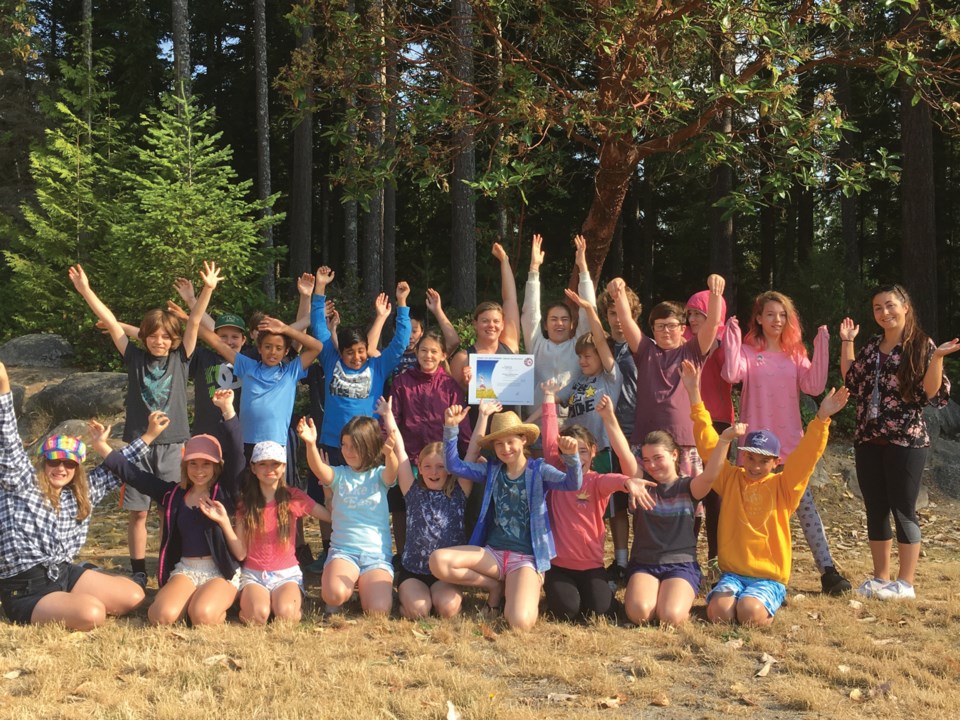Kassandra Stinchcombe is grinning this June. Summer vacation is here, but better yet, her Grade 5/6 class at Halfmoon Bay Elementary School won this year’s Energy Cup – dropping school energy use by over nine per cent in one week in April through behaviour changes.
“Students better understand climate change impacts and ways they can make positive impacts,” she said. “From basic science they now also experienced local solutions to climate change happening here on the Coast.”
Rob Collison, manager of facilities and transportation for SD46, agrees. Four years ago he had the brainchild to initiate the Energy Matters program, which hosts the Energy Cup. He works to find energy solutions daily.
“With better windows, better insulation, more efficient air-handling and heating systems, and better light controls we save energy. To reduce greenhouse gas emissions we have to electrify more schools – i.e., replace natural gas heating with electricity. That drives costs up because gas is cheaper – but using electricity saves tonnes of emissions. So we installed solar in multiple schools with available grants, to help further offset the high cost of electricity and reduce our emissions,” he said.
“Davis Bay Elementary now saves 50 per cent on electricity use even in November and March compared to before. The three winter months we rely on the grid – the other seven months we put more back into the grid than we use. Langdale Elementary is now a top energy performer after adding solar, new windows and HVAC upgrades.”
While technology upgrades are sometimes easier than behaviour change, the importance of changing our habits is key, Collison said. “Sometimes it’s little things that make a difference like leaving projectors on when not needed and empty fridges plugged.”
The Energy Matters program provides Grade 4 to 10 teachers with curriculum linked lesson resources focused on the science and solutions. Energy Cup is a school-to-school competition that encourages students to find those opportunities – at school and at home. The heat is turned down a couple of degrees for one week in April and all classes help save energy in every way.
Apart from the recognition of winning, Halfmoon Bay Elementary students are excited to have their school’s name attached to a carbon offset purchased to offset 30 tonnes of greenhouse gas emissions, Stinchcombe said.
“Some emissions are hard to eliminate quickly,” Collison added. “A carbon offset is a way to reduce emissions elsewhere to help offset emissions we create here. I hope we can use these stopgap solutions to find creative local solutions. In the past decade SD46 buildings have gone from 1,000 tonnes of CO2e to 580 tonnes per year. Our costs in that time dropped 20 per cent ($100,000 annually) and we dropped energy usage by one third.
“We also need to remember with transportation being over a third of B.C.’s carbon emissions we are keen to see more students walking, biking and busing to school. Gibsons Elementary is piloting a walking school bus initiative this fall – we are excited and encourage more of this,” he said.
“We are proud of these efforts and we also recognize the district as a whole has lots more to do. It’s good to see students voicing their concern with the Climate Strikes. We look forward to working with student leaders in the district to help connect more dots to savings. We could get below 400 maybe even 350 tonnes next year with all schools on board. And it’s quality education – through technology, behaviour change and out of the box solutions. It’s helping empower students. Mid-April 2020 is our next Energy Cup. We invite all schools to join us.”
– Submitted



